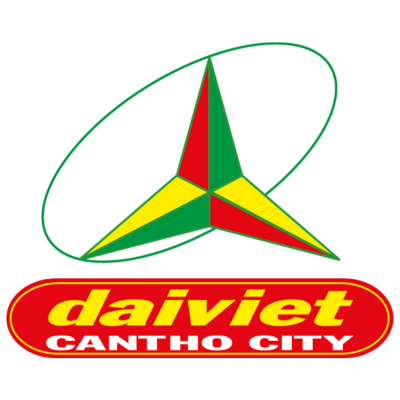I. General Introduction to the Faculty of Economics The Faculty of Economics at Dai Viet Saigon College – Can Tho Campus is designed with a "vocational training" approach, aiming to provide fundamental knowledge in economics and management while focusing on practical skills. Students at the faculty not only learn through textbooks but also participate in business simulation activities, case studies, and direct internships at companies. This enables students to quickly become familiar with real business processes, from data processing and market analysis to business strategy development.
Touching Reality: Opportunities and Prospects from the Faculty of Economics
I. General Introduction to the Faculty of Economics The Faculty of Economics at Dai Viet Saigon College – Can Tho Campus is designed with a "vocational training" approach, aiming to provide fundamental knowledge in economics and management while focusing on practical skills. Students at the faculty not only learn through textbooks but also participate in business simulation activities, case studies, and direct internships at companies. This enables students to quickly become familiar with real business processes, from data processing and market analysis to business strategy development.
II. What Will You Learn? – Training Program and Features
A Specialized and Practical Training Program The Faculty of Economics’ training program is built based on real labor market demands, incorporating both compulsory and elective courses to equip students with:
Microeconomics and Macroeconomics: Students learn to analyze supply and demand mechanisms, market structures, and the impact of fiscal and monetary policies on the economy. This helps them understand how different industries operate and how businesses react to economic fluctuations.
Business Management: Topics include strategic management, human resource management, corporate finance, and production management. Lectures are supplemented with group exercises and case studies from real businesses. For example, students are assigned to build a business model for a startup, learning how to balance costs and profits, assess risks, and implement market strategies.
Marketing and E-Commerce: This course introduces students to market research, branding, and online marketing strategies. They are trained in using digital tools such as Google Analytics, SEO, and social media management to establish an online product presence.
Practical Teaching Methods The strength of the college-level training system lies in its emphasis on practical learning throughout the study process:
Real-world projects: Students engage in projects like "Consumer Market Analysis for a New Product," "Developing a Business Plan for a Small Enterprise," or "Evaluating the Effectiveness of an Online Marketing Campaign." These projects typically last 4-6 weeks, combining classroom learning with hands-on teamwork under the supervision of experienced lecturers.
Internships at Enterprises: Partnerships with local businesses such as financial service companies, retail stores, and advertising firms allow students to practice directly in real work environments. Internships last 2 to 3 months, enabling students to experience daily tasks such as data processing, financial reporting, and marketing campaign execution.
Learning Environment and Faculty Team The faculty members at the Faculty of Economics include seasoned professionals from major corporations as well as independent economic analysts. In addition to teaching, they also mentor students in real-world projects and internships, helping them:
Directly connect with businesses: Through workshops, seminars, and specialized discussions, students hear firsthand experiences from successful entrepreneurs.
Develop soft skills: Small-group classes encourage discussions and enhance communication, presentation, and teamwork skills—essential elements for graduates to be confident in their careers.
III. What Jobs Can You Do? – Career Opportunities After Graduation
Popular Career Paths After completing the program, students from the Faculty of Economics have multiple career directions based on their acquired knowledge and practical skills:
Accounting and Finance Staff: Applying financial management knowledge, data analysis, and report preparation to work in businesses, banks, or financial centers.
Marketing and Sales Specialists: Utilizing market research skills, developing marketing strategies, executing online advertising, and managing customer relationships.
Business Administration Professionals: Taking on middle management positions or directly overseeing departments such as human resources, production, or operations.
Many alumni have started their careers at small businesses before advancing to large corporations.
Early Internship and Work Opportunities A significant advantage of the college training system is that students engage in "work" as early as their first year through:
Regular Internship Programs: With internships lasting 2-3 months per term, students not only grasp theories but also gain hands-on experience such as drafting reports, attending department meetings, and using enterprise management software.
Corporate Collaboration Projects: Students participate in real-world projects assigned by companies, helping them build relationships and expand professional networks, increasing their chances of employment after graduation.
Entrepreneurship and Freelance Work Support Beyond traditional employment, students also have opportunities to:
Join Startup Training Courses: Regularly organized workshops and seminars equip students with knowledge on business planning, fundraising, and personal branding.
Consultation and Mentorship: Industry experts provide mentoring programs, helping students identify niche markets, develop ideas, and apply innovation in real-world business operations.
IV. How Much Can You Earn? – Salary Realities and Prospects
Starting Salary New graduates from the Faculty of Economics typically earn a starting salary ranging from 4 to 7 million VND per month. Specifically:
Accounting and Financial Support Staff: Usually start at 4 – 5 million VND per month.
Marketing or Sales Specialists: Can earn from 5 – 7 million VND per month due to competitiveness in the sales and media sectors.
Reference link: https://www.topcv.vn/giai-phap/tim-viec-lam/salary
Salary Growth Potential Thanks to internships and real-world projects, students accumulate experience and soft skills, which can increase their salary:
After 2-3 years of experience: Salaries may rise to 8 – 12 million VND per month.
After 5 years with a management position: Salaries can reach 15 million VND per month or higher, especially in large enterprises or multinational corporations.
Factors Influencing Salary Levels Key factors determining salary include:
Expertise and Certifications: Additional IT, foreign language, or specialized training certificates give students a competitive edge.
Internship Experience and Achievements: Successful projects and real-world experience help negotiate higher salaries.
Company Scale and Industry: Larger enterprises and technology or e-commerce firms often offer higher starting salaries.
V. The Role of Dai Viet Saigon College – Can Tho Campus in Meeting Market Demands
Training Based on Business Needs In a rapidly changing market, businesses need quick-thinking, creative, and problem-solving personnel. The Faculty of Economics’ training program:
Focuses on core skills such as data analysis, problem-solving, and IT applications in management.
Is regularly updated according to new trends, ensuring students always have fresh and practical knowledge to meet business demands.
Strong Business Connections The school maintains close collaborations with enterprises through:
Networking and Workshops: Students meet and interact with entrepreneurs, managers, and industry experts.
Joint Business Projects and Internships: Students are placed in real-world projects, learning to apply theories and solve business challenges, building a strong project portfolio for career advancement.
Career Development Orientation Beyond technical knowledge, the college emphasizes career guidance through:
Career Counseling Programs: Regularly held to assist students in creating resumes, preparing for interviews, and building personal brands.
Personalized Mentoring: Successful alumni and industry experts provide guidance, share experiences, and help students shape their career paths.
VI. Looking Back on the Training Journey and Future Prospects
The Importance of Economics as a Major In a globalized and highly competitive environment, understanding economic principles helps students:
Grasp market trends to make informed business decisions.
Use analytical tools and forecasting methods to optimize resources and improve business management efficiency.
Success Stories and Statistics Many alumni from the Faculty of Economics have quickly established stable careers, with success stories ranging from promotions in financial departments to successful startup ventures.
Practical Connections – The Key to Future Success The training program is not just theoretical but also opens doors to:
Internships and Projects: Providing firsthand experience of corporate operations and tools.
Business Networks: Helping students connect with potential employers and increase job opportunities post-graduation.

